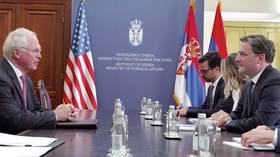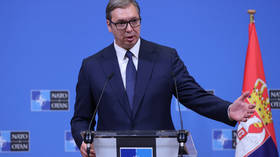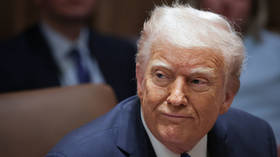Twitter bans seven embassies

Accounts of seven Serbian embassies and a consulate in the US have been “suspended” by Twitter, the foreign ministry in Belgrade said on Monday. Serbia has asked Twitter to unblock the accounts, arguing that such censorship of a pro-European democracy that upholds freedom of speech was unacceptable.
The embassies in Armenia, Ghana, Iran, Indonesia, Kuwait, Nigeria, and Zimbabwe had their accounts “suspended” on August 18, the Serbian foreign ministry said on Monday. The same happened to the consulate in Chicago, in the US state of Illinois. The suspensions happened “without any explanation or prior notice of a possible violation of the social network’s rules.”
“Without getting into Twitter’s business policies, we note that it’s unacceptable to censor diplomatic offices of a democratic state that has not been sanctioned in any way,” said Belgrade.
“Serbia is a country that is strategically committed to membership in the European Union and our political and democratic standards – including media freedoms – are adjusted to be in line with the highest European standards,” the Serbian foreign ministry said in a statement. “Therefore it is absurd that a series of our diplomatic and consular offices were censored on a social network that boasts of promoting democracy and diversity of opinion.”
Belgrade hopes the ban is “not part of an attempt to thwart or silence Serbia in its struggle for the truth,” in particular about the situation in Kosovo, the foreign ministry added.
Sixteen individuals – including 13 MPs from the ruling Progressive Party – were likewise suspended without explanation last week. Among them was Arnaud Gouillon, the French-born aid worker currently employed as head of the foreign ministry Office for Cooperation with the Diaspora. His account has since been restored.
On the day Twitter targeted Serbian accounts for suspensions, Serbian President Aleksandar Vucic met with Kosovo Albanian authorities in Brussels. The talks, mediated by the US and the EU, were supposed to resolve tensions in the breakaway province.
NATO occupied Kosovo after the 78-day war in 1999 and handed it over to ethnic Albanian separatists, who declared independence in 2008 with US support. Belgrade refuses to recognize the government in Pristina, in which it is supported by Russia, China and about half the world’s countries.














